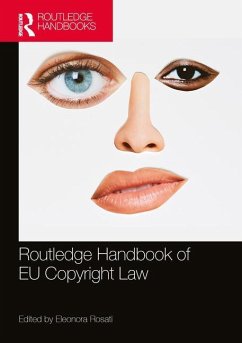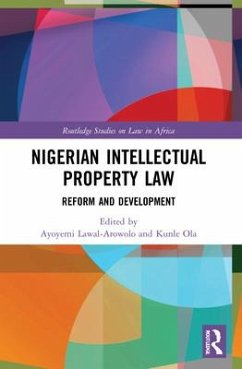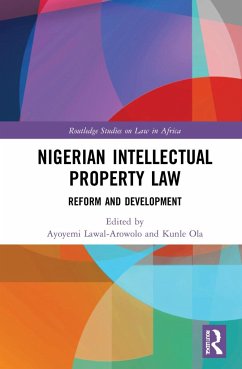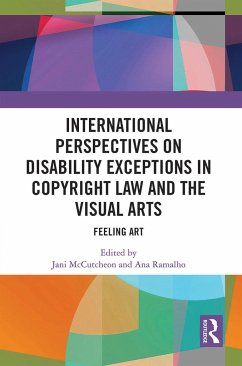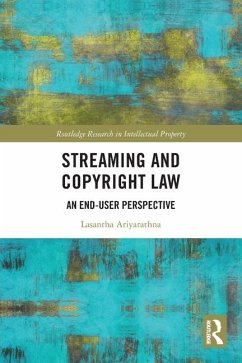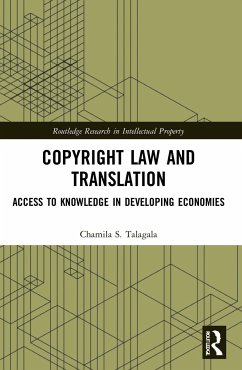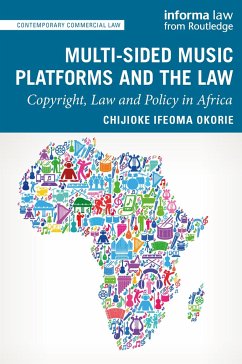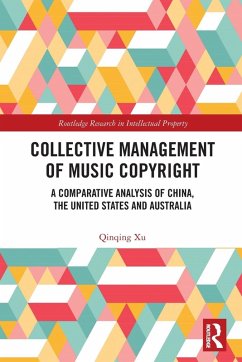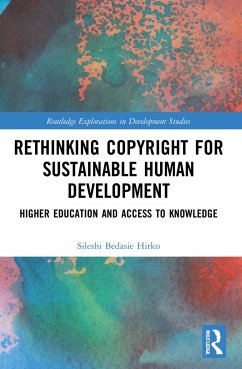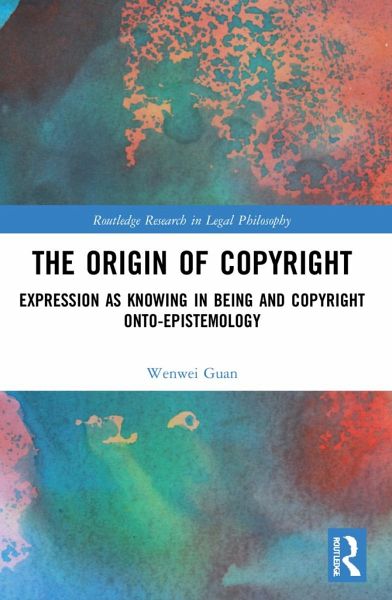
The Origin of Copyright
Expression as Knowing in Being and Copyright Onto-Epistemology
Versandkostenfrei!
Versandfertig in 6-10 Tagen
43,99 €
inkl. MwSt.
Weitere Ausgaben:

PAYBACK Punkte
22 °P sammeln!
Contemporary copyright was born in a heroic era of human history when technologies facilitated idea dissemination through the book trade reaching out mass readership. This book provides insights on the copyright evolution and how proprietary individual expression's copyright protection forms an integral part of our knowing in being, driven by the advances of technology through the proliferating trading frameworks.The book captures what is central in the process of copyright evolution which is an "onto-epistemological offset". It goes on to explain that copyright's protection of knowing in orig...
Contemporary copyright was born in a heroic era of human history when technologies facilitated idea dissemination through the book trade reaching out mass readership. This book provides insights on the copyright evolution and how proprietary individual expression's copyright protection forms an integral part of our knowing in being, driven by the advances of technology through the proliferating trading frameworks.
The book captures what is central in the process of copyright evolution which is an "onto-epistemological offset". It goes on to explain that copyright's protection of knowing in originality's delineation of expression and fair use/dealing's legitimization of unauthorized use and being are not isolatable, but rather mutually implicated. While the classic strict determinism has been subject to an onto-epistemological challenge, the book looks at the proliferation of global trade and advent of information technology and how they show us the beauty and possibility of intra-dependence between copyright authorship, entrepreneurship, and readership, which calls for a fresh copyright onto-epistemology.
Building on its onto-epistemological critiques on the stakeholder, force, and mechanism of copyright evolution, the book helps readers understand why, not only copyright, but also law in general, and justice too, need to be onto-epistemologically balanced, as this is categorically imperative for being, the fundamental law of nature.
The book captures what is central in the process of copyright evolution which is an "onto-epistemological offset". It goes on to explain that copyright's protection of knowing in originality's delineation of expression and fair use/dealing's legitimization of unauthorized use and being are not isolatable, but rather mutually implicated. While the classic strict determinism has been subject to an onto-epistemological challenge, the book looks at the proliferation of global trade and advent of information technology and how they show us the beauty and possibility of intra-dependence between copyright authorship, entrepreneurship, and readership, which calls for a fresh copyright onto-epistemology.
Building on its onto-epistemological critiques on the stakeholder, force, and mechanism of copyright evolution, the book helps readers understand why, not only copyright, but also law in general, and justice too, need to be onto-epistemologically balanced, as this is categorically imperative for being, the fundamental law of nature.





